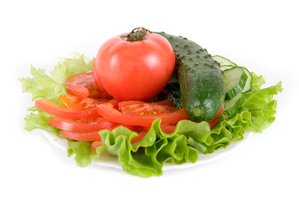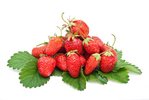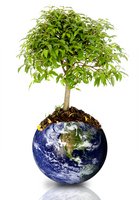Organic-Vegetable-Garden
Organic Garden Pest Control
An organic-vegetable-garden not only tastes delicious, but the additional benefits of being an organic-gardener can be extremely self rewarding in several ways.
So many artificial and harmful means are relied upon to grow fruits, herbs and vegetables. Chemical fertilizers are so common. Consider the unhealthy use of fungicides and herbicides. It's all so unnecessary, and takes away from the nutritious value of the food. The benefits-of-organic-food is enhanced 100 percent by the removal of these chemical ingredients.
Organic pest control is a much better route to follow without the use of harmful pesticides.
The purpose of a pesticide is to get rid of something that is living, and that's quite a powerful thing. We're always told that chemicals are ok for us if only used in small amounts and by following the directions. That may be somewhat true, but to what extent?
Chemical is chemical, and it can still be absorbed in other ways such as through the skin, or ingested in small amounts through foods that are eaten.
These small amounts add up, and what do they lead to? Many believe cancer-causing sicknesses and other ailments over time.
The environment suffers as well as these poisons are absorbed into the water systems killing fish and other native species right in their own habitats. Chemical alteration takes place when these additives are put into the environment.
Erosion of topsoil is a problem caused by conventional farming methods. Organic farming practices help to alleviate this situation in a meaningful way for farmers with huge areas of farmland to manage.
Cost of course is an immediate consideration.
Gardening the organic way alleviates the need for these expensive chemical supplies, and saves you a pile of money. More dollars in your pocket to invest back into your organic garden.

Enjoy good health from your
organic-vegetable-garden.
As consumers of everyday supermarket produce and meats, we are exposed to chemicals which aren't gotten rid of until cooked.
When chemicals are consumed, illnesses occur and commonly have to do with the gastrointestinal tract.
What better reason, as an organic-gardener, to provide yourself and family with these types of food facts and opt for the benefits of organic food from your organic-vegetable-garden instead?

The organic-vegetable-garden isn't the only organic "product" out there.
Everything from organic wines, coffees, and teas to organic chocolate is available and all produced with the same organic qualities principles.
Keep this in mind, when shopping for other particular items.

The fiber content of fresh fruit and vegetables organically grown is quite beneficial to the human body in other ways than just for taste.
When untouched by artificial processing, nutritional value remains within the food from an organic-vegetable-garden in original form.
Slicing, heating and changing the structure causes a loss of nutritional content. This happens to foods that are canned, mostly, because of the many different processings they have to go through to meet certain standards.
They then have to have the preservatives added to keep what's left from deteriorating. This is what is meant by the actual fibers of food changing form and what happens to them before we even get to taste them.
Fibers in original form are beneficial health-wise in other ways.
These fibers, when not tampered with, have the ability to soak up intestinal fluids as they pass through our system, and creates a solid mass of fecal material, which in turn, equals a healthy bowel movement.
Let's be honest - we all know how we feel when we know we haven't had a regular or healthy bowel movement over a period time. It's not a pleasant feeling at all. Healthy bowel movements are very necessary to overall good health in humans.
The fibers of good pure foods are able to thoroughly rid the intestines of older deposits of feces. This allows the body to absorb nutrients much more efficiently afterwards.
Would You Like To Become
An Organic-Gardener?
There are steps you can take to steer you along the right path in the planning stage.
Soil is most important, as it's the base from which your organic-vegetable-garden will grow. It must be able to provide the proper nutritional ingredients to your plants.
Prepare the dirt with an organic soil enhancement generous mix of compost or humus which is made of all organic materials.
Rich and nutritious compost can come from straight from your kitchen. Start a pail to collect it all, if you haven't already.
All those lovely scraps are full of the food your soil craves. This immediately transforms everyday garbage to something you will benefit from later and a great way to protect the environment. Couple this with a good bed of pine needle mulch, and you've got a good beginning to a great compost mix. A good mix keeps the earth moist, and the weeds down.
Have you ever had troubles growing anything before in a particular patch of soil? I'm convinced I have some "bad dirt" around my house in certain spots. There's nothing in it to sustain plant life as it lacks nutritional value.
You may want to have your soil tested, because if you have bad dirt to begin with, the results of your organic gardening efforts will be pretty sparse. A nutritious bed of soil could produce outstanding vegetables. You want your organic-vegetable-garden to have the best foundation from which to get a good start.
Do you know what you want to grow?
Do you want to grow from seed, or just plant small seedlings?
Seeds are ok if you get started very early in the season. If you opt for actual young plants, make sure they are purely organic and not begun with the use of chemicals. Talk about this with the info specialists at your local nursery.
Make sure your family will actually eat these vegetables.
Don't waste money planting an organic-vegetable-garden with what people don't like. Try a few, and if they are successful, expand your garden next year with a few more additions. Experiment gradually discovering the benefits-of-organic-food in your new role as an organic-gardener.
Consider doing some companion gardening.
Certain plants can play a huge part in your garden by protecting the others from harmful bugs and the diseases that develop.
There is such a thing as beneficial bugs, and other plants can attract those ones. If planted around your garden and location is properly planned, certain plants can keep garden pests away from your organic veggies. Marigolds, onions and garlics are good for this.
Make use of natural organic pesticides as much as possible.
Did you know that a simple mixture of everyday dish soap and and vegetable oil can get rid of a lot of the harmful insects in a garden? So can pepper sprays. A rhubarb leaf boiled down can produce juices that when mixed with water is wonderful for ridding aphids in the garden.
Lady bugs, toads, and frogs will help in a big way as they are natural predators of the harmful garden insects. Don't shoo them away. They will help you considerably.
Larger plants can provide much needed shade, keep weeds down, and keep the soil moist.
Be sure you have a good idea where plants are going to go. You need to consider how room they will need to thrive properly and fully. Little plants develop by height and width. Make sure they have the proper space to grow as they should and aren't cramped in a tight space.
Weeding is very important and should be a routine chore to keep your soil healthy, and also to provide the room your plants need to spread and thrive.
Do not over-water. You will get to know when it's needed and you need to be consistent here as well. Your garden dirt should never be soaking with water, but should have a generally moist feel to it. Don't drown your plants, but don't deprive them of a drink ever. This puts undue stress on any plants.
Proper care of the organic-vegetable-garden is essential to get the benefits-of-organic-food grown from it.
Leave Organic-Vegetable-Garden, Return To
Carbon-Footprint Defined Home page

Thanks For Your Support
Green Maven!

Popular Tips
Recycling Tips
Garage Sale Tips
Laundry Room
Green Travel
The Company Money
Eco-Baby Gift
Make A Diaper Cake







